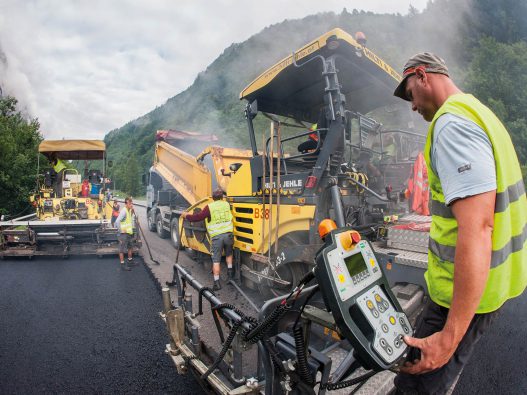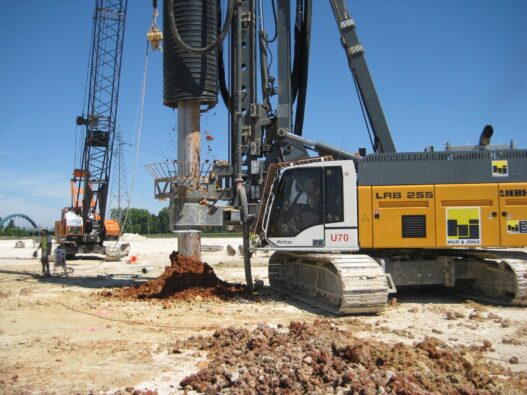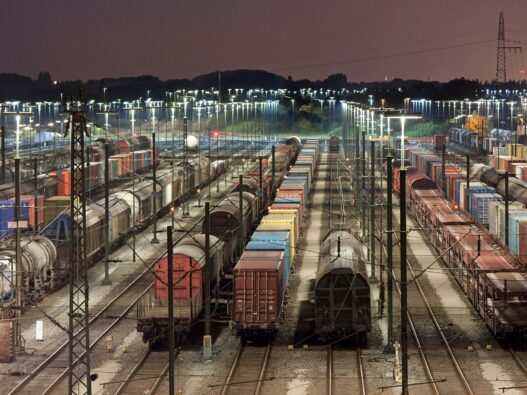Hilti & Jehle - Dispo on a New Level

"The measures that we developed together gave us a very good basis for convincing the shareholders to support our innovative logistical concept. As a result, we were able to successfully implement the first measures quickly, in order to ensure that we would still be well positioned in the market in the future and to increase our potential for development.“
Successful logistics – Successful company
At Hilti & Jehle, management of transportation, hauliers and equipment was under close scrutiny. Optimal structures and modern technology brought lower costs, greater transparency and increased reaction rates.
Hilti & Jehle is proud to look back over 135 years of experience in the construction industry. Since its establishment in 1876, the Feldkirch-based company has made a name for itself as a professional partner for the construction of many important roads, bridges and public buildings. Today, Hilti & Jehle has approximately 600 employees located at several sites in Vorarlberg and Tirol offering a comprehensive range of services in the field of structural and civil engineering.
Building on construction
The main focus of the consultancy project with Xvise was the optimisation of transport, haulier and equipment management with the aid of modern IT. Both a dispo tool and a credit note procedure were to be introduced – but the credit note procedure didn’t come to fruition – we supply the data, yet receive an invoice from the hauliers. Hilti & Jehle works with various hauliers and also has its own fleet of vehicles and a range of large-scale equipment. The high transport costs (internal and external) had become a burden. At the same time, the company only had limited technical aids for managing, evaluating and optimising the transportation of goods and equipment. Scheduling was still being handled manually.
Hilti & Jehle wanted to return all of its focus back to its core competence – construction. This would require efficient logistics, which meant better utilisation of the vehicles together with a make-or-buy decision on the basis of an intelligent reduction of its own vehicle fleet. Additionally, the company’s executives wanted to consolidate the company’s position in the market through a more efficient organisation of internal processes.
Organisation & IT on new foundations
On the one hand, targeted development of the logistics organisation was required. Areas of responsibility were pooled in order to facilitate centralised logistics management. Operational and strategic tasks, which until now had been central functions, became the responsibility of the head of logistics, and the dispatcher was responsible for the management of transport and equipment. Hilti & Jehle has already implemented these organisational changes on various levels.
On the other hand, our consultants were keen to optimise the transport service-provider process using a customised computer program. Working together with the dispatcher and the IT team, we identified the requirements of the dispo tool and discussed its benefits, contents and application, before going on to define the necessary master data. The corresponding processes were also discussed in detail and optimised accordingly. What we ended up with was an IT tool offering numerous possibilities for analysis and evaluation. The tool also provides a basis for future investment decisions, as well as negotiations with hauliers and service providers and has brought dispatch up to a whole new level. The company is now able to react quickly and effectively to any unexpected situations that may arise. Hilti & Jehle also bought its own mobile terminals so that transport documents could be scanned and transmitted to the dispatcher directly from the building site.
Convincing logistics concept
In addition to the transparency of all logistics activities, made possible by the dispo tool and centralised logistics responsibility, the company was also able to reduce transport costs and make them variable. Moreover, synergy effects between the different business units were achieved thus enabling targeted and fast reactions to changes in the market.
“With the measures that we developed together, we had a very sound basis with which to convince our shareholders of the innovative logistics concept“, Dr. Reinhard Moser, Managing Director at Hilti & Jehle summarises. “Consequently, we were able to implement the first measures promptly and successfully in order to ensure the sustainability of our good market position in the future and increase our development potential.”


